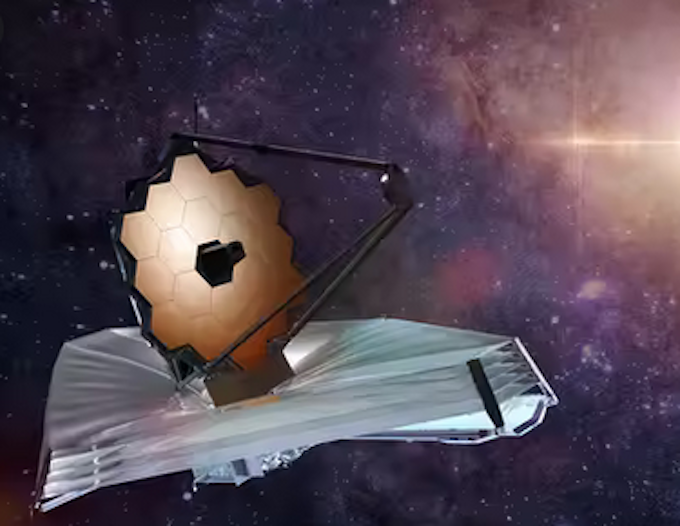
Pacific Media Watch newsdesk
New Zealand’s leading daily newspaper has praised the “gift of inspiration” over global cooperation in launching the James Webb space telescope at the Christmas weekend, but has decried the failure of the international community to seriously tackle the growing covid-19 public health crisis cooperatively.
The New Zealand Herald declared today in an editorial that the timing, cooperation, and development work involved launching the successor to the Hubble telescope “is in marked contrast with the still muddled, individual country-based approach to the pandemic”.
The launch also could not help but “signify the yawning gap between what people are capable of and what they commonly settle for”, the newspaper wrote.
The launch of the James Webb telescope was a collaboration between the space agencies of the United States, Europe and Canada with people from 29 countries having worked on the project, reports AP.
“It blasted away from French Guiana on a European Ariane rocket. As with previous space missions, it involves vision, ambition and precise calculations that have to work perfectly to pull it all off,” the Herald said.
“The telescope has a 1.5 million km journey ahead, far beyond the moon, with a task of eventually gazing on light from the first stars and galaxies.
“It all hinges on the telescope’s mirror and sunshield unfolding on cue over nearly two weeks, having been tucked away to fit into the rocket’s nose cone.
“If that goes right, the telescope will be able to look back in time a mind-boggling 13.5 billion years.”
Fascinating year for science
The US$10 billion telescope project had capped a “fascinating year for space science” after the “incredibly precise landing of a rover and a helicopter drone on Mars, which resulted in the first powered flight on another planet”, said the Herald.
Noting Nasa’s science mission chief Thomas Zurbuchen’s comment welcoming the launch — “what an amazing Christmas present” — the newspaper contrasted the collaborative achievement with the “muddled, individual country-based approach” over covid-19.
“While the rocket was launching humanity’s imaginative time machine, hundreds of thousands of people on Earth were getting a ‘gift’ of covid at Christmas. Both Britain and France hit more than 100,000 cases on Saturday,” the Herald said.
“The cost of the space project is tiny compared to the US$725 billion the US spent on defence in the 2020 financial year — more than the next 11 countries combined. Next year’s bill is US$770 billion.
“It is closer to the US$50 billion amount the OECD has estimated it would cost to vaccinate the world’s population against the coronavirus and protect the global economy.
“Far more money than that — US$12 trillion — was spent by countries in financial support between March and November 2020.
Time to hatch global covid plan
“Although that support was urgently needed, surely there was also time to hatch a US$50 billion global plan for a coronavirus endgame before the vaccines came on stream in late 2020.
“Now, a year later, each country is dealing with the omicron wave its own way, and progress in distributing vaccines to poorer regions is slow. People feel frustrated the vaccines haven’t guaranteed a return to life as we knew it.
“The vaccines themselves are an amazing scientific achievement: developed quickly and still doing their job of protecting the vast majority of vaccinated people against severe covid disease.
“A study by the World Health Organisation and a European Union agency estimated in November that the vaccines had saved nearly half a million lives in a region of 33 countries.
“But it is hard for people to really absorb achievements that involve prevention: When they work as hoped, at least some people believe it’s proof the threat was overblown.”













































